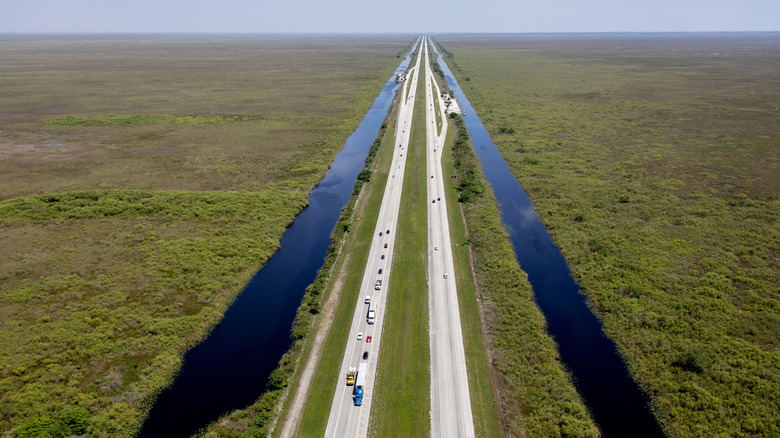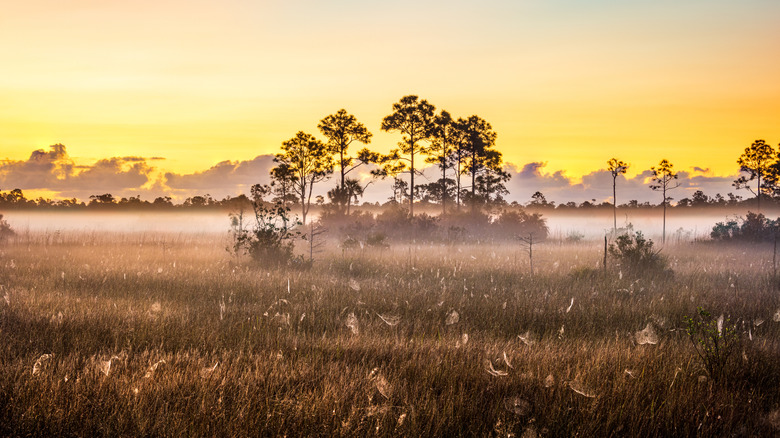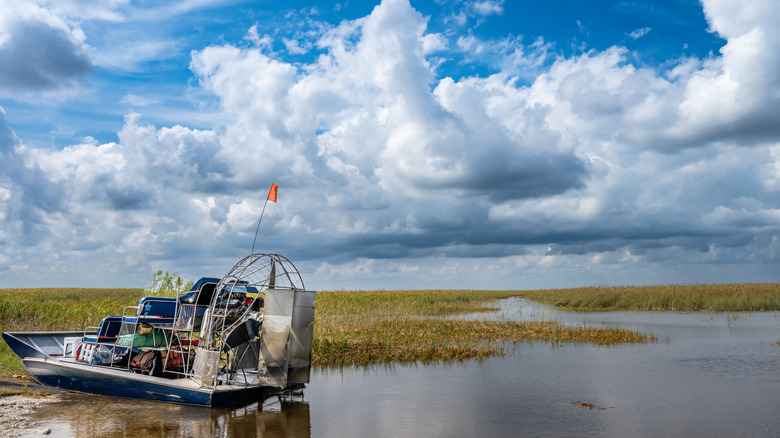An interstate highway that stretches across the southern end of Florida allows motorists traveling between Fort Lauderdale and Naples to experience one of the most unique ecosystems in the world. Interstate 75 between the east and west coasts of Florida — affectionately dubbed Alligator Alley when its construction was planned in 1966 — is a four-lane freeway with a 70 mph speed limit and easily the fastest way for motorists to get from one metro area (Fort Myers) to the other (Fort Lauderdale/Miami).
But it’s more than just a means to get from Point A to Point B. Alligator Alley is considered a South Florida must for travelers. It’s a journey across the Florida Everglades, which are home to a hotel where dolphins and manatees swim just outside your door, through one of the wildest stretches of the Sunshine State. And for birders, hikers, wildlife watchers, and anglers, Alligator Alley provides access to one of the most diverse and imperiled places in America. As it bisects the Everglades, Alligator Alley features several pull-offs and rest areas that also serve as recreational access points. Here, kayakers and canoeists can launch their boats for paddling and fishing excursions into several protected areas of the Florida Everglades. There is even access to hiking trails, fishing piers, and visitor tours, like airboat rides into the River of Grass.
The diverse species and outdoor opportunities of the Everglades
The Florida Everglades is a slow-moving, shallow river of sawgrass that drains most of South Florida, from Lake Okeechobee all the way south to Florida Bay. It’s the largest subtropical wilderness in the United States. This vast, 2 million-acre protected refuge provides some of the best habitat left in North America for endangered American crocodiles, critically rare Florida panthers, and a host of other more common creatures, from alligators to black bears. The Everglades are home to hundreds of bird species, from wading herons to rare warbles and world-traveling waterfowl, like the Eurasian wigeon. A drive across Alligator Alley puts visitors right in the middle of it all.
In its freshwater reaches, the Everglades are an incredible fishery for native largemouth bass, crappie, gar, and sunfish. For the last half-century or so, it’s become home to exotic gamefish like peacock bass and tilapia that have been transplanted from waters around the globe. In its brackish and salty waters closer to the sea, anglers can chase redfish, tarpon, and snook, among other sought-after quarry. Pull-offs and rest areas along Alligator Alley provide several boat launches so anglers and paddlers can follow canals and channels into the swamps to chase fish with both fly and conventional tackle. Alligator Alley is a great place to launch a fishing trip for just a few hours or, for the hearty outdoors enthusiast, a weeklong Florida outdoors adventure in one of America’s wildest places.




